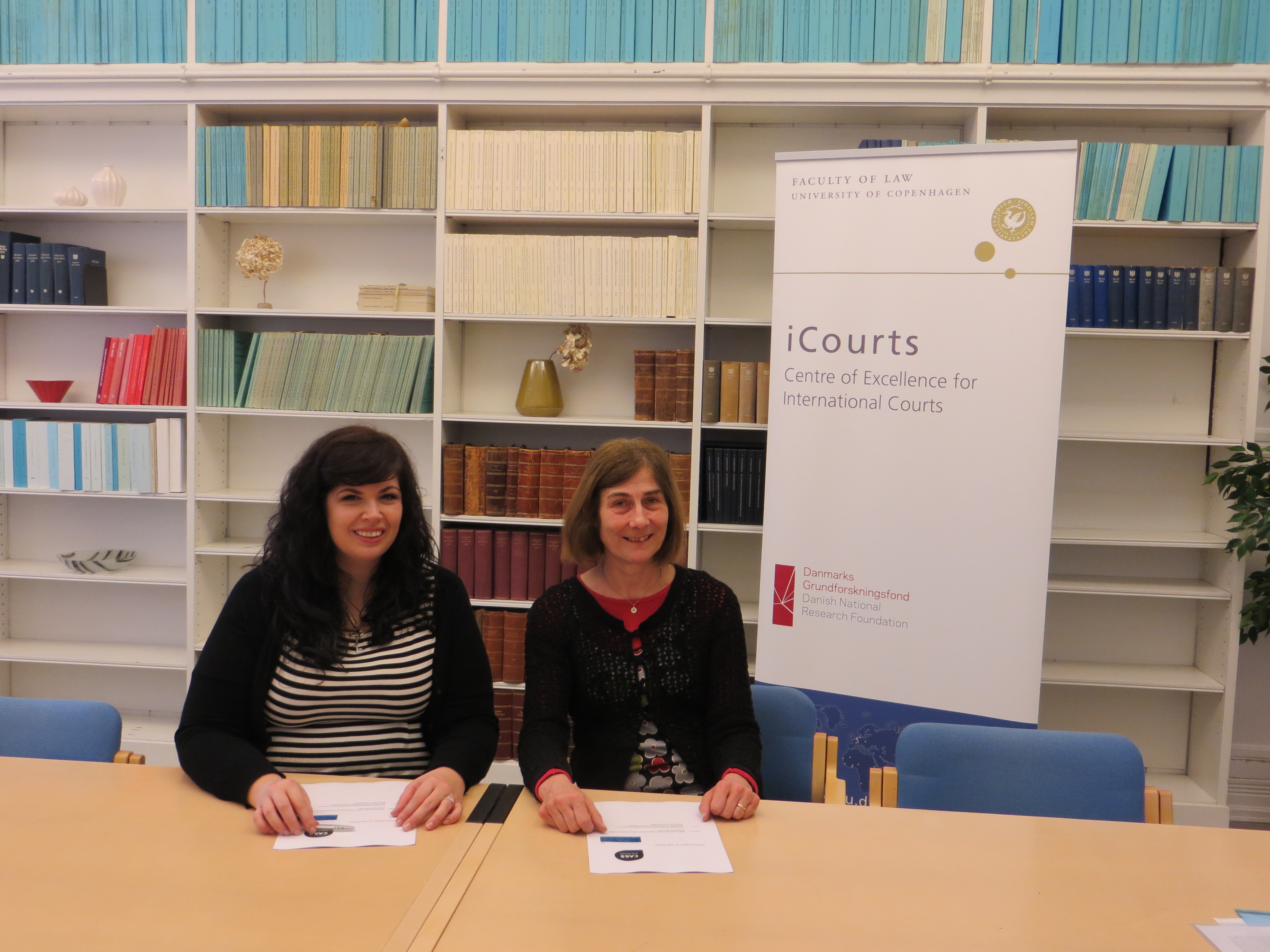Last week, I had the honour of returning to iCourts, a centre of excellence for international courts dedicated to investigating the role of international courts in globalising legal order, as well as their impact on politics and society. iCourts is funded by the Danish National Research Foundation and located at the University of Copenhagen. During this visit, I signed the Memorandum of Agreement that iCourts and CASS have concluded, formalising collaboration between the two centres based on our joint interest in the corpus investigation of language in the context of law.

The first joint CASS-iCourts research project, “Decoding the rule of law: Corpus-based discourse analysis of the construction of achievements of the International Criminal Tribunal for the Former Yugoslavia” has just received funding from the University of Lancaster’s Research Committee under the ESRC’s Radical Futures in Social Science programme. On this project, Anne Lise Kjær (associate professor, iCourts) and I (senior research associate, CASS) are digitising U.N. documents, updating semantic lexicons to deal more effectively with field-specific terminology, and then analysing millions of words of legal language to investigate constructions of abstractions such as ‘the truth’. Some of our findings will be presented at CADAAD 2014 in Budapest, in a paper titled: “Key semantic domain analysis as a method of exploring underlying ideologies and self-representation strategies in legal texts”.
While I was at iCourts, I also delivered a three-hour workshop on the topic of “Corpus Tools in Legal and Social Science Research”. The first hour of this was dedicated to a lecture introducing fundamental techniques in corpus linguistics, suggesting ways in which these might be helpful in analysis of legal texts. Three tools developed at Lancaster University – CQPweb, Wmatrix, and VARD – were introduced, and a walkthrough was provided demonstrating their basic functionalities. In the second hour, participants partook in guided exercises with provided data sets of legal language, designed to familiarise them with the tools and techniques. In the final hour, participants were welcomed to either continue on the advanced sections of the guided exercise, or to begin work on their own data. At this point, several participants were guided in the installation of AntConc, an additional tool that has been updated in association with the corpus linguistics MOOC and optimised for learners. Using this tool, attendees were able to experiment with techniques in non-English data, specifically in Norwegian, Spanish, and French.
Check back periodically for the latest developments on the collaboration between iCourts and CASS, and for early access to research findings.
